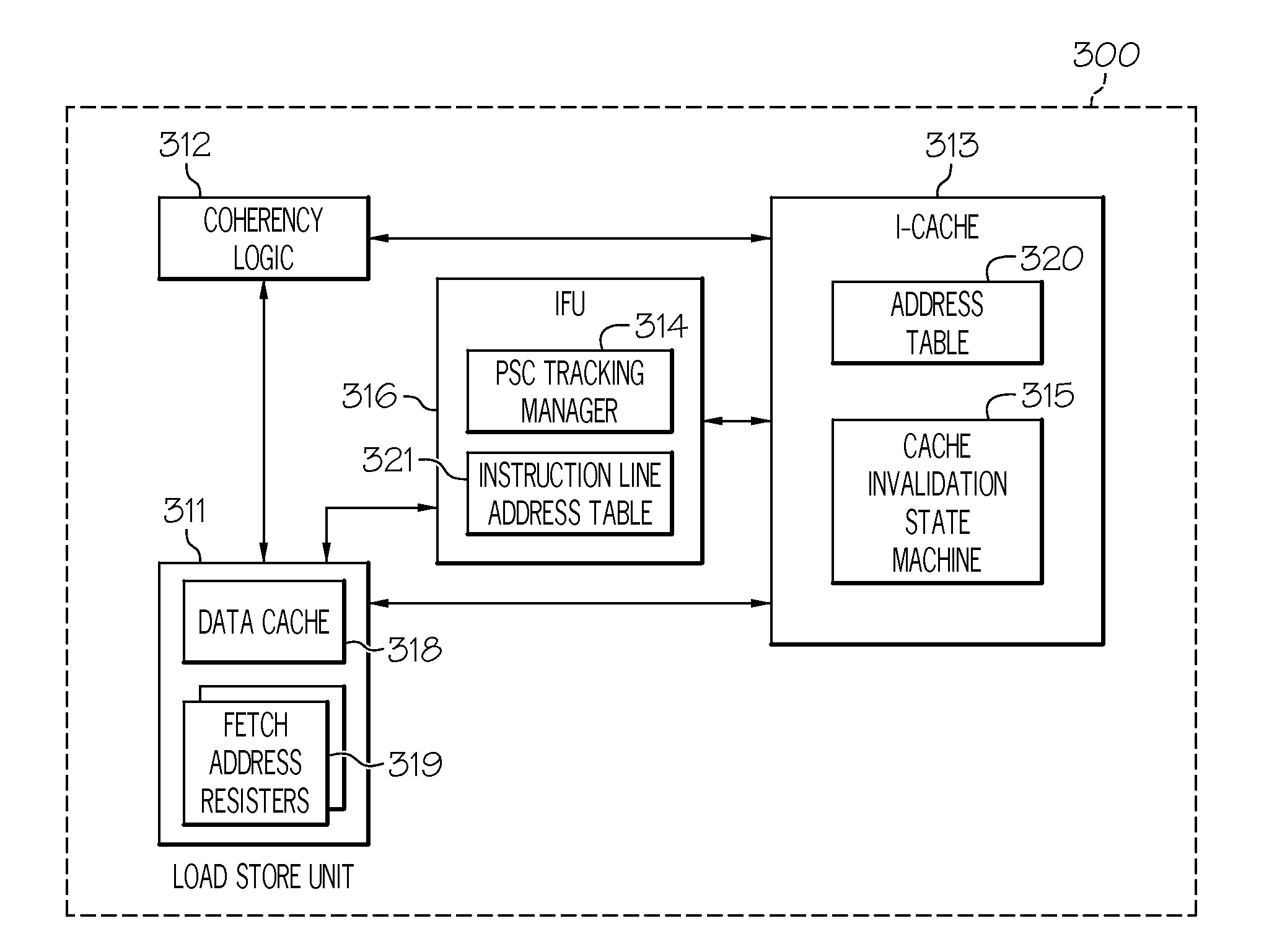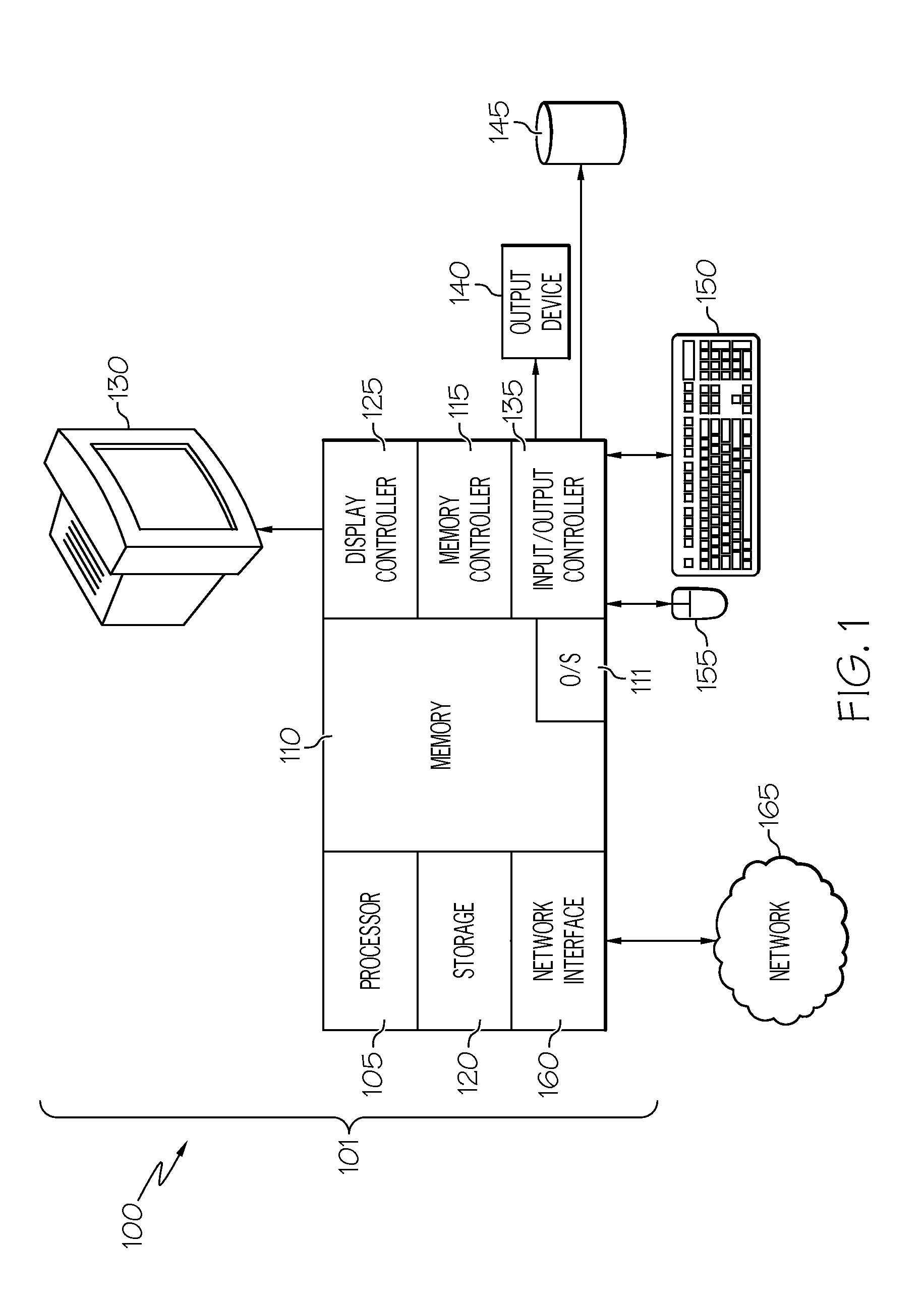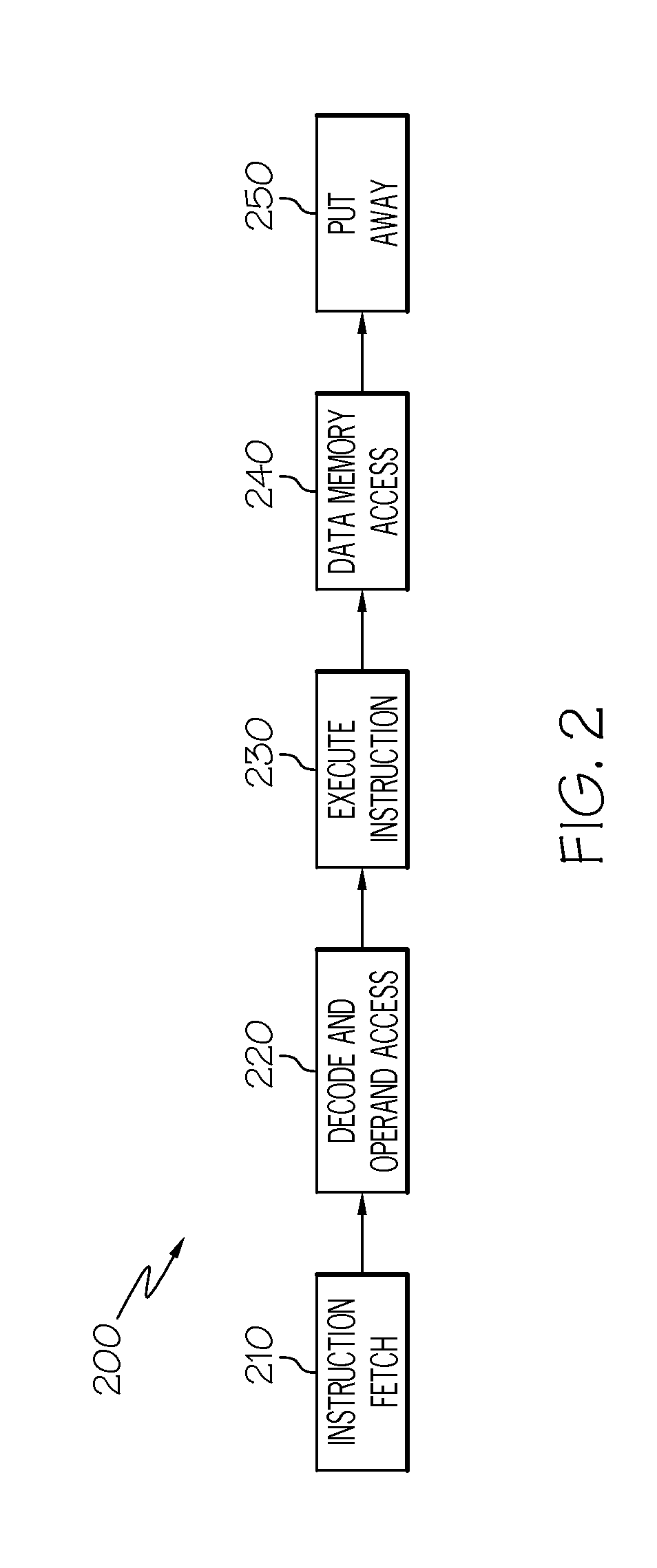Managing cache coherency for self-modifying code in an out-of-order execution system
a self-modifying code and execution system technology, applied in the field of microprocessor design, can solve the problems of long delay between any speculative store execution, cache lack of necessary information, and special problem of modern microprocessors for self-modifying cod
- Summary
- Abstract
- Description
- Claims
- Application Information
AI Technical Summary
Benefits of technology
Problems solved by technology
Method used
Image
Examples
Embodiment Construction
[0014]Various embodiments of the present invention will be discussed in detail hereinbelow with reference to the attached drawings.
[0015]One of the advantages of embodiments of the present invention is that the arbitrary method of forcing flushes to free PSC tracking resources based on time or the timing of events unrelated to PSC resolution is eliminated. In embodiments of the present invention, the ICache and IFetch logic is configured to send information to the load-store-unit (LSU) about the existence (or lack of existence) of instructions in the pipeline that were fetched from the line where PSC was detected. The LSU only needs to continue to track PSC and reserve the tracking resources as long as the IFetch informs the LSU that instructions from this line are still in the pipeline. When all of the instructions from this line are removed from the pipeline (either by instruction completion or pipeline flush, or a combination of both) the LSU no longer needs to track PSC for this...
PUM
 Login to View More
Login to View More Abstract
Description
Claims
Application Information
 Login to View More
Login to View More - R&D
- Intellectual Property
- Life Sciences
- Materials
- Tech Scout
- Unparalleled Data Quality
- Higher Quality Content
- 60% Fewer Hallucinations
Browse by: Latest US Patents, China's latest patents, Technical Efficacy Thesaurus, Application Domain, Technology Topic, Popular Technical Reports.
© 2025 PatSnap. All rights reserved.Legal|Privacy policy|Modern Slavery Act Transparency Statement|Sitemap|About US| Contact US: help@patsnap.com



